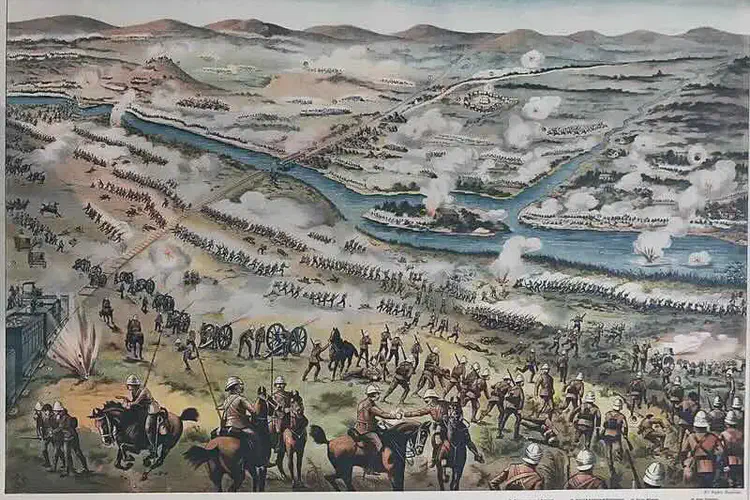Irish Units in the Boer Army Fight in the Battle of Modder River
Section: Irish units in the Boer army fight in the battle of Modder River
November 28, 1899

During the Second Boer War (1899–1902), also known as the Anglo-Boer War, Irish volunteers fought on both sides of the conflict. While some Irish individuals served in the British forces, others joined the Boer forces in their fight against British imperialism.
The Battle of Modder Rive
The Battle of Modder River occurred from November 28 to December 2, 1899, during the early stages of the Second Boer War.
A British column under Lord Methuen, that was attempting to relieve the besieged town of Kimberley, forced Boers under General Piet Cronjé to retreat to Magersfontein, but suffered heavy casualties altogether.
It was a significant engagement between British forces and the Boers in the Northern Cape of South Africa. Irish volunteers, whether fighting for the British or Boer forces, would likely have been involved in various capacities.
It’s important to note that the motivations for Irish individuals participating in the conflict varied. Some were driven by loyalty to the British Empire, while others were motivated by anti-imperialism and a desire to support the Boer cause for independence.
The Boer forces, consisting primarily of Boers of Dutch descent (Afrikaners), but also including foreign volunteers, fought a guerrilla war against the British. The war had a complex and multifaceted character, with individuals from various backgrounds and nationalities taking part in the conflict.
Aftermath - British Victory
Was a tiring day again with the heat and especially after forming at 4:30 am and being the 3rd battle in a week. Boers fled after British catch vital positions. Fiercest battle yet fought in the war.
An almost impossible offensive task. The total Boer casualties may perhaps have amounted to 150, mainly due to shell-fire. 70 British were killed and another 413 were wounded